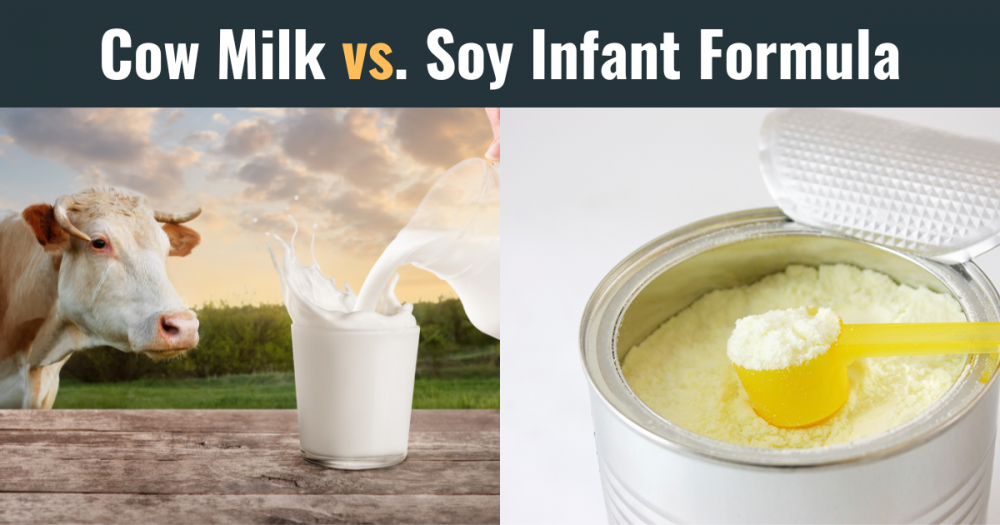Mothers who cannot select breastfeeding, the infant formula becomes a critical alternative to provide necessary nutrients, which are required for infant’s healthy development. Thus, choosing the right nutrition for the baby is the most critical decision for mothers; so, infant formula is specially designed to mimic the composition of breast milk.
However, advancement in nutritional science and formula in infant formula offers balanced mixture of proteins, carbohydrates, fats, minerals, and vitamins to the baby for vigorous growth. As global manufacturers lead to a large-scale of variety, including cow milk-based, soy-based, hydrolysed, and special formulas with specific dietary or medical needs for infants, is projected to boost infant formula market growth. Pristine Market Insights highlights the diversification of infant formula market, by increasing consumer interest toward alternatives to traditional cow milk formulas.
What is Cow Milk Infant Formula?
Cow milk infant formula is the most common type of formula and serves as a substitute for breast milk when breastfeeding is not supplemented. It is significantly derived from regular cow’s milk but undergoes additional modifications, which make it safe and nutritionally appropriate for infants. Raw cow’s milk contains high levels of protein content, minerals, and sodium, which cannot be suitable for babies under 12 months, resulting in effects on babies’ immature kidneys and digestive systems.
However, cow milk is processed to reduce protein content, adjust fat levels, and provide essential nutrients, such as iron, vitamin D, DHA, ARA, and other vitamins, which make it suitable for infant consumption, resulting to propel of infant formula market growth. This formula supports to healthy growth and development, which provides necessary building blocks for bones, brain development, and immune function, as well as proteins in cow milk formula can be tailored to be easier to digest. Furthermore, continuous innovations in formulation of cow milk formula offer added probiotics, organic ingredients, and non-GMO sources, which make them sustainable alternative in modern parenteral perveance.
Pros of Cow Milk Formula:
- Cow milk is formulated to mimic breast milk and provides essential nutrients for infant growth.
- It is available in various brands and in almost all pharmacies and supermarket store.
- Well-tolerated by most babies, expect that the infants have allergies or intolerances.
- Available in different formulation, such as liquid concentrate, powder, ready-to-feed, and cost-effective than plant-based formulas.
Cons of Cow Milk Formula:
- Cow milk may result in gas, constipations, or reflux in babies.
- It does not contain immune-protective antibodies such as breast milk antibodies, which protect infant against infections.
- Higher environmental footprint compared to soy formula, also limits adoption in strict vegan diet families.
What is Soy Infant Formula?
Plant-based alternative to traditional cow milk formula, known as soy infant formula, which is mainly made from soy protein isolate derived from soybeans. It is particularly formulated to provide complete nutrition for infants, which is needed for healthy growth and development during the first years of infant life. The major advantage of soy infant formula is lactose-free, which makes it suitable formula for babies with lactose intolerance or have rare condition like congenital lactase deficiency and galactosemia, making it largely adoptable in infant formula market.
Soy formula is largely adopted in vegan diets or chosen by religious families where restriction against animal products, results in driving the demand for plant-based, allergen-free infant nutrition in infant formula market. Soy formula contains naturally occurring phytoestrogens, a plant component that mimic estrogen which makes it suitable for long-term hormonal changes. Additionally, advancement in soy formulation to offer fortified nutrients to ensure that they meet the dietary requirements, resulting to boost infant formula market share.
Pros of Soy Formula:
- It is ideal for lactose intolerance, congenital lactase deficiency, and galactosemia disease in infant.
- Infants have mild skin digestive reactions to cow milk-based formulas, in this condition soy milk formulas used.
- Stable composition of soy protein, which is suitable for consistent nutrition for baby.
Cons of Soy Formula:
- Cross-reactivity for babies with multiple food allergies.
- Soy milk may reduce absorption of minerals such as zinc, iron, and calcium due to the presence of Phytates compounds.
Medical Advice and Pediatric Recommendations:
Most health authorities or pediatricians, including the American Academy of Pediatrics (AAP), recommend cow milk-based formula for the first line alternative to breast milk for healthy development of infant. Mothers who cannot choose breastfeeding, cow milk formula is considered as most nutritional and well-tolerated alternative for infants. However, AAP and European Society for Pediatric Gastroenterology, Hepatology, and Nutrition (ESPGHAN) recommend soy infant formula generally only in specialized case where baby cannot tolerate cow milk formula.
Additionally, if infant also allergic to soy, pediatricians suggest hypoallergenic or amino acid-based formulas. While AAP and ESPGHN do not recommend soy formula for premature or low birthweight infants, as well as it does not prevent colic or allergic conditions. Also, cow milk formula is restricted to the use for infants with lactose intolerance or those with strict vegan family diet. Therefore, the cow milk-based formula is widely consumed in the infant formula market, due to its ability to support infants’ bone development and immune function.



